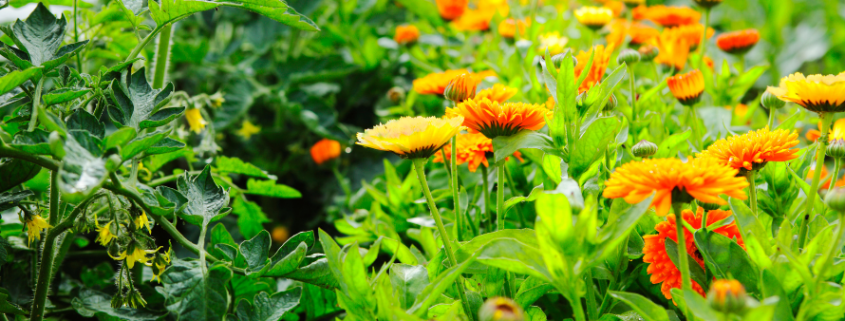3 Innovative Tips for Organic Landscaping
Everyone loves a beautiful, weed-free lawn full of grass. However, this often necessitates using a wide range of chemical fertilizers in the grass for insect and weed control and fertilizer. In regards to the environment, this might indicate terrible news. Furthermore, people are increasingly applying pesticides in their backyards and gardens.
There are rising worries about the toxicity of these substances to our lawns and families. If you’ve pondered how to maintain a beautiful yard that is also ecologically friendly, you may wish to explore organic landscaping. Entering the gardening world might be intimidating. But with these three tips, you can start with organic gardening and landscaping easily.
An Overview Of The Organic Landscaping
Without using chemical fertilizers and pesticides, organic gardening involves gardening in the most natural manner possible. Besides nourishing your grasses with liquid fertilizers, you boost soil quality by mulching with organic compost, dung, and other natural materials.
Further, you explore alternatives to using pesticides, such as planting companion plants to confound them and attract their predators. Moreover, you will be employing a water jet to blow them away from your plants instead of using a chemical spray.
Organic gardens are lush, lively environments teeming with birds and other organisms that function similarly to chemical sprays. Moreover, practicing organic gardening is healthy for you, your children, your pets, and nature. An organic lawn could be more labor-demanding than a conventionally maintained grass lawn. Yet the environmental benefits can be significant.
Getting Started With Organic Landscaping
Switching to organic lawn care need not be difficult. With little research, you may instantly start making improvements to your garden. So let’s have a look at the tips.
1. Choose the ideal location and check your soil
To start a home garden or place potted plants, you must carefully consider the location. Various plants have diverse needs. Location is everything in a garden. Before devoting time and resources to developing a garden, you must ensure that the environment is conducive to growth. Even the most skilled gardener’s attempts will fail if there is too much shade. Maximal growth requires maximum photosynthesis in our plants.
Hence, observe the sun’s path over your lawn or balcony. Are there any trees or structures that provide shade at particular hours of the day? Can you visualize how the sunlight will change over the seasons? After all these considerations, take the next step of checking and preparing your soil.
For a healthy garden, the soil is a foundation. The key to organic landscaping is good soil health. All plant life’s magic starts in the soil. Soil binds plant roots, supplies them with water, improves nutrient absorption, and even boosts plant resistance. We all wish for nutrient-dense soil. However, this is a rare case. Hence, you need to do the groundwork.
Applying organic matter such as compost and mulches of foliage or straw may transform even the toughest, most packed clay into healthy soil. Over time, microorganisms decompose these components, transforming your soil into a nutrient-dense loam. Further, ensure that your lawn has a sufficient quantity of nutritious soil. Most experts suggest a minimum of 4 to 8 inches of soil. Also, aerate the soil if you are starting from scratch. New grass will need more effort to grow deep roots in compacted soil.
2. Weeding little yet often
Weeds may rapidly overtake the garden, whether you are growing them organically or not. Since we are discussing organic landscaping, we will use alternatives to chemicals. Hence, if you are sprinkling weed killer on weeds, you may find the traditional or hand-pulling method a little tedious.
The goal is to not allow the weeds to grow too big; if you consistently pluck them off during the seedling stage, you won’t notice any difference. However, if you delay until the weeds have established extensive tap roots, you’ll have tremendous work on your hands.
Weeding is not the sole method for weed control for organic landscaping. Mulching surrounding your plants or along your garden’s walkways is an excellent method for weed control. Likewise, pine needles and dried leaves make excellent mulch. Further, using ground coverings like plywood over the garden during the off-season may help prevent the growth of weeds.
3. Practice companion planting
Companion planting in landscaping and agriculture is the practice of growing various crops for various purposes. So this includes pest control, pollination, providing a home for beneficial insects, maximizing the use of an area, and increasing crop output. You can research companion planting to understand which plants grow together well and what benefits they offer to one another.
Conclusion
One of the best organic landscaping tips or suggestions is to contact the experts since they can help you with a tailored strategy for your landscape. Tea Lane Nursery offers tested and latest practices and processes. Contact us today.







